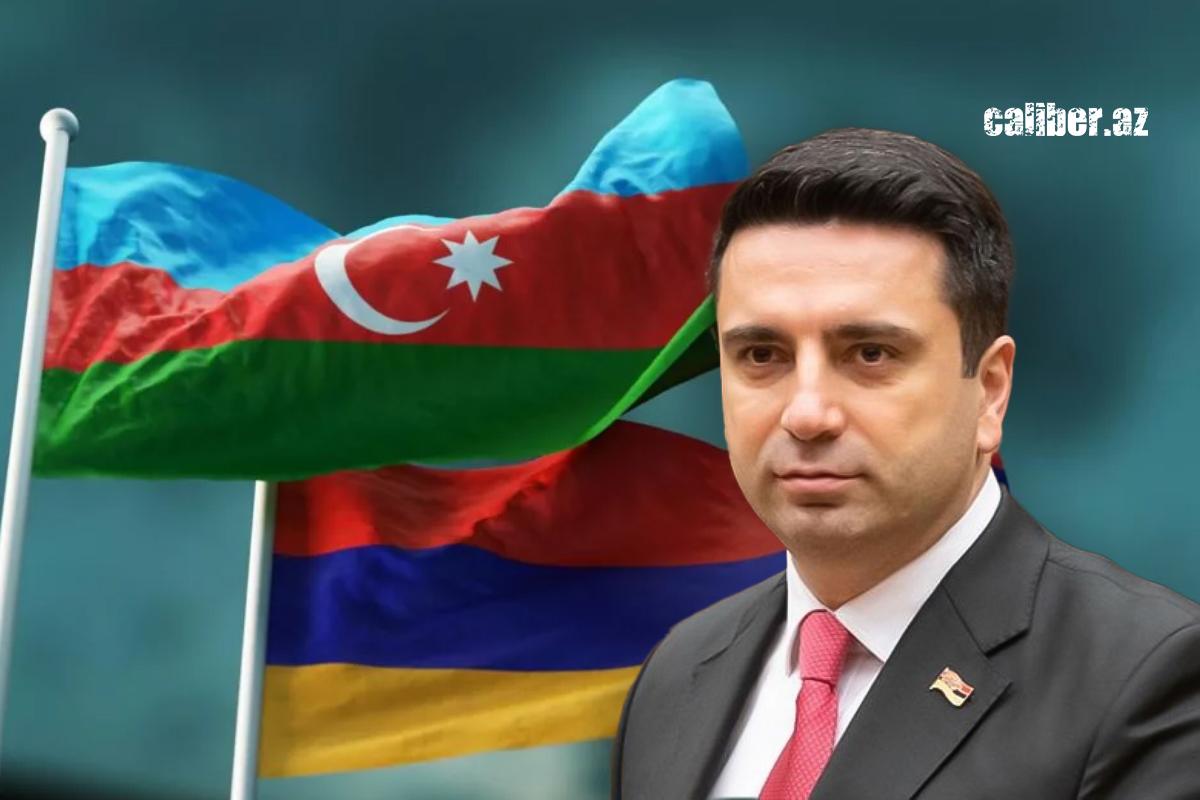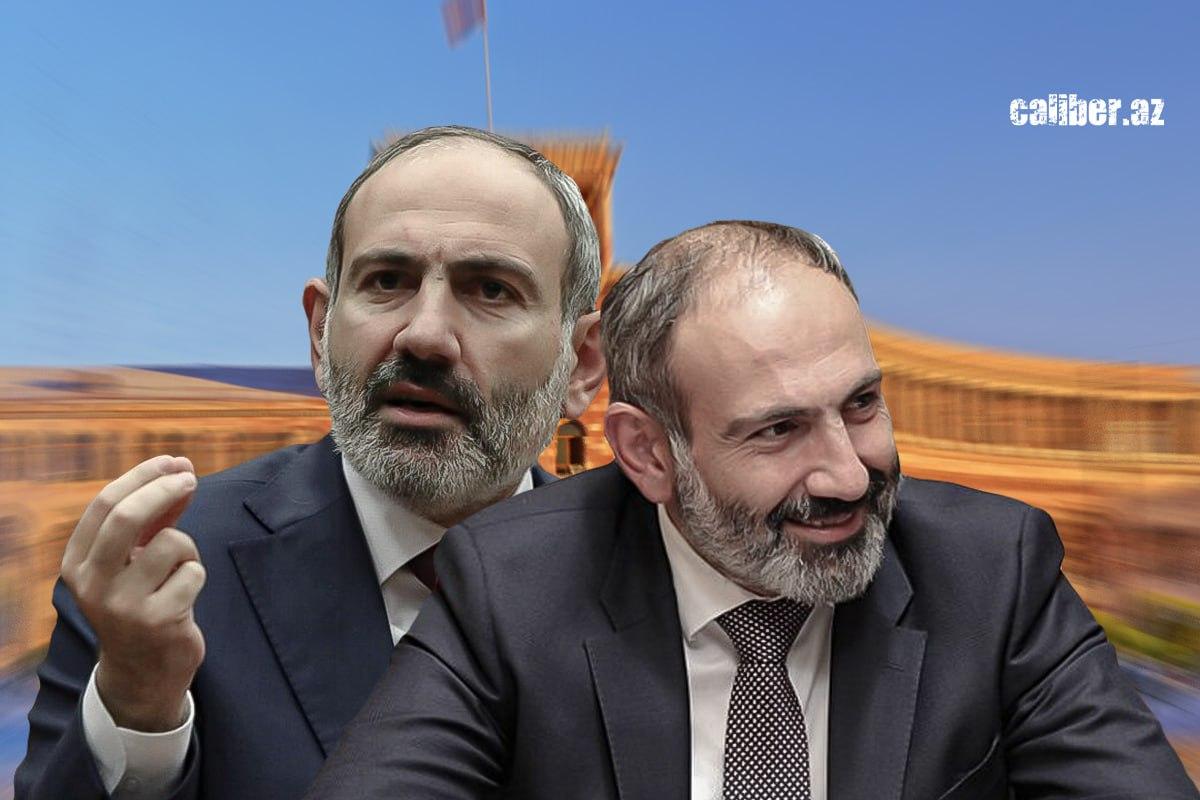Verbiage over vision: Armenian leadership's subterfuges stymie peace talks Baku sees through Yerevan’s “strategic” facade
Armenian Parliament Speaker Alen Simonyan has made yet another provocative statement regarding Azerbaijan. He specifically criticized Baku's demands to amend the Armenian constitution, which includes territorial claims against Azerbaijan, labelling them as unreasonable. “Legally, this accusation lacks foundation. It is the Azerbaijani Constitution that includes a clause making territorial claims not only against Armenia but also against other countries in the region. Armenia does not pursue such matters; our political will is to finalize a peace treaty with Azerbaijan, and we have consistently expressed our desire to achieve this as swiftly as possible. We remain committed to the peace agenda,” Simonyan stated during a press briefing on October 1.
He further noted that if “Azerbaijan truly has no territorial claims against Armenia and its leader seeks peace in the region, then the responsibility lies with Azerbaijan.” Simonyan emphasized, “We are awaiting an official response from Baku regarding the platform on which the peace treaty will be negotiated, and how and where discussions will take place. Various international partners are also proposing suitable platforms. This serves as a message about the international community's expectations. I want to ascertain whether it is necessary for international partners visiting Baku during COP29 to discuss this treaty, the prisoners of war held in Azerbaijan, and Azerbaijan's territorial claims against Armenia. Is this something of significant interest to Azerbaijan?”

To start, it is important to highlight that Baku has consistently reiterated: “The claims that the Azerbaijani Constitution includes territorial claims against Armenia are false.” The Azerbaijani Foreign Ministry’s spokesperson, Aykhan Hajizada, specifically clarified, “There are no territorial claims to Armenia in Azerbaijan’s Constitution. References to the 1991 Constitutional Act on State Independence and the 1918 Declaration of Independence merely highlight historical facts — namely, which territories were part of Azerbaijan during the first Republic of Azerbaijan and when they were annexed to Armenia. These are undeniable historical facts, but they do not imply territorial claims in Azerbaijan’s current legislation.”
Now, turning back to Simonyan's remarks, it is evident that the Armenian side is banking on leveraging the upcoming international event in Baku to secure the release of Karabakh separatists charged with serious crimes. In this regard, Yerevan is clearly counting on the backing of its Western allies.
Secondly, by presenting a superficial readiness for peace, the Armenian side is making futile efforts to appear before the international community as a “peacemaker nation.” Simultaneously, it subtly suggests its willingness to participate in the COP29 conference. However, recent reports from Armenian media indicated that Yerevan’s authorities had not yet decided whether to attend the COP29 event in Baku, suggesting Armenia aims to maintain some intrigue on this front.
What is particularly notable is the Armenian leadership’s increasing reliance on the Constitutional Court. This is evident in Simonyan’s recent statement: “The Constitutional Court makes its decisions independently. It is inappropriate to question its impartiality, as there are numerous examples where the Court's rulings have diverged from the authorities' stance.” In this context, Simonyan echoed Prime Minister Nikol Pashinyan's earlier remarks at the UN General Assembly in New York: “If the Constitutional Court of Armenia finds that the peace agreement with Azerbaijan contradicts our Constitution, we will face a situation where constitutional amendments will be required to achieve peace.”
Pashinyan further denied any territorial claims in Armenia’s constitution against Azerbaijan, even offering to provide written evidence of this to interested international partners, reinforcing the Armenian stance.

The verbiage coming from the Armenian authorities suggests that Yerevan’s position lacks the necessary constructivism to advance meaningful negotiations with Baku. Armenia appears intent on quickly signing a truncated peace treaty without amending its constitution, which would effectively free its hands for further militarization and potentially preparing for a future conflict with Azerbaijan. Notably, Simonyan made similar remarks back in May during a conversation with journalists at the National Assembly, claiming that the peace treaty process between Armenia and Azerbaijan should be finalized swiftly. Even earlier, in November 2023, the Armenian speaker sought to persuade the international community that a peace treaty between Baku and Yerevan could be signed within 15 days, provided there is sufficient political will.
However, Baku has long since uncovered Yerevan's deceptive strategy. It is no coincidence that Hikmet Hajiyev, assistant to the Azerbaijani president and head of the foreign policy department of the Presidential Administration, recently reiterated Azerbaijan's position in an interview with the Italian newspaper La Repubblica. Hajiyev emphasized, "Armenia must renounce Karabakh, amend its constitution, and demilitarize." These are Baku's three primary demands, and without their fulfilment, a peace treaty with Armenia remains unattainable.








